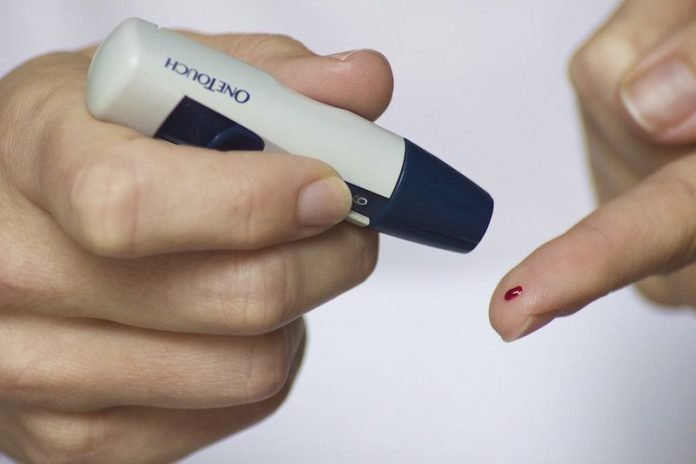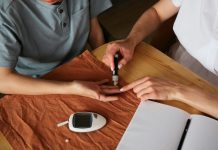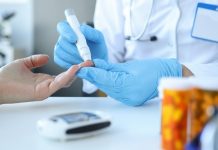
In a recent study published in ACS Sensors, researchers developed a new quick and painless sensor that measures blood sugar in human sweat.
The touch-based test measures blood sugar in sweat and applies a personalized algorithm that correlates it with glucose in the blood. It’s more than 95% accurate at predicting blood glucose levels before and after meals.
The new sweat test isn’t ready for prime time yet as large-scale studies are still needed to validate the approach.
The study is from the University of California, San Diego. One author is Joseph Wang.
Monitoring blood sugar to make sure it remains in the target range is the cornerstone of diabetes management, but the pain and inconvenience of daily finger pricks can be a deterrent for many.
The search for an alternative to finger-prick testing to improve diabetes control and quality of life for people with this disease has been ongoing, and sweat has many merits.
Fingers contain many sweat glands and produce a high amount of sweat, but sweat has lower levels of glucose than blood.
What’s more, readings may vary with other skin characteristics, resulting in inaccurate blood sugar measurements.
In the study, the new sensor includes a sweat-absorbing polyvinyl alcohol hydrogel that sits on a flexible plastic strip.
A patient places his finger on the sensor for one minute and the hydrogel absorbs tiny amounts of sweat and undergoes a reaction that results in a small electrical current detected by a hand-held device.
To make sure that the reading is accurate, researchers also measured volunteers’ blood sugar with a standard finger-prick test and developed a personalized mathematical formula that could translate each person’s sweat glucose to their blood glucose levels.
To calibrate the device, a person with diabetes would need a finger prick just once or twice per month.
The team says such fast and simple touch-based blood-free fingertip sweat glucose assay holds considerable promise for improved patient compliance and enhanced diabetes management.
In the future, researchers would need to explore the interference of things like soap from hand-washing, lotions, dirt and food residue on blood sugar readings from sweat, and then there is the question of cost and complexity.
If you care about blood sugar health, please read studies about this common fruit may help reduce your blood sugar after a meal and findings of a new way to reverse high blood sugar and muscle loss.
For more information about blood sugar and your health, please see recent studies about this popular drink may help control diabetes, lower blood sugar and results showing that this high-protein plant may help improve blood sugar.
Copyright © 2021 Knowridge Science Report. All rights reserved.



